【語源学】深淵について01 ― abyss と tehom
今回からabyssを手がかりに、ユダヤ・欧米世界の深部を知る探求を行いたいと思う。
abyssの来歴
まずは語源から見ていこう。
ギリシャ語abyssus→ラテン語abyssos経由というのはおなじみの経路だ。原意は”depths of the earth or sea; primordial chaos”だという。primordialというのは「始原の」という意味で単に古いだけではなく、「もっとも古い、始まりのとき」を指す。グレコ・ローマン世界では「始原の混沌を地の底や海の底のイメージで捉えていた」ことがわかる。
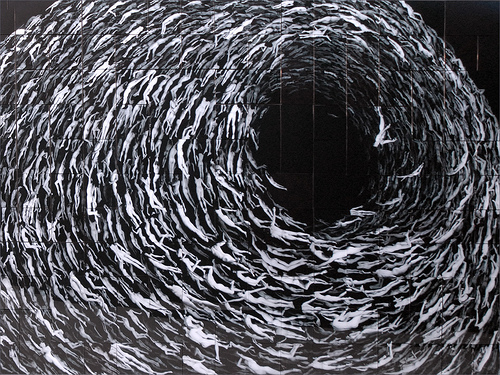

Angelo Musco氏による写真プロジェクト “TEHOM” より(http://www.angelomusco.com/)
ところが、このabyssosというギリシャ語、オリジナルではない。abyssosはヘブライ語聖書をギリシャ語訳したときに使われただけで、オリジナルはヘブライ語のtehomなのである(この最初のギリシャ語訳聖書をセプトゥアギンタと呼ぶ)。
abyssとhellのつながり?
しかも聞き捨てならないことに、新約聖書ではこのことばがhellと訳されているのだという。地獄とは「地の底や海の底がイメージされた始原の混沌」のことなのか!これは発見である。やはり仏教に影響された日本の地獄とはずいぶん違うものだ。
というわけで、さっそくtehomの方へ深入りしたくなるわけだが、その前にabyssの使用例を挙げておきたい。読んでもらえばわかるように、abyssは軽く扱えないことばであることがおわかりいただけると思う。
abyssの用例
一般的に欧米に暮らすユダヤ人はユダヤ教に複雑な感情を抱いている。対応も個人によってさまざまである。
以下に紹介する書評の著者シルマンさんも例外でなく、若い頃、父親に、イギリス文学やグレコ・ローマンの古典文学をやるくらいならユダヤ教の神秘思想を学んだらどうかといわれ、一も二もなく「ありえない」と返答したという。ところが、齢を重ねた今は違う。
“Book Review: Gershom Scholem ― A Rich and Complicated Jewish Life” by Roberta Silman
But now I understand my Dad’s fascination with Scholem’s work on the Kabbalah, for here was a very brave man, a man who was not afraid to articulate the failure of conventional Judaism to bridge the gap between God and man.
Or in Scholem’s words, to find an answer to the sad fact that “Religion’s supreme function is to destroy the dream-harmony of Man, Universe and God, [creating] a vast abyss, conceived as absolute, between God, the infinite and transcendental Being, and Man, the finite creature.” Moreover, he had the courage to come up with an answer. As Prochnik explains it,
だが、いまにして父親のショーレムのカバラについての本への傾倒ぶりが理解できるのである。ショーレムはたいへん豪胆な男だった。ひるむことなく、従来のユダヤ教は神と人の間の溝を埋めることに失敗したと言い放ったのだ。
ショーレム自身のことばを借りれば、ユダヤ教は以下の悲しい事実への答えを見つけられなかった。「宗教の至上の役割は、人と宇宙と神の間にあった夢の調和を破壊することにある。無限の超越者たる神と有限の被造物たる人間の間に、人をして絶対的なものと認識せしむる巨大な深淵をうがつこと」にあるのである。ショーレムはそこで終わらず、答えを出す勇気さえ持っていた。本書の著者プロクニクの説明を聞こう。
“Mysticism, according to Scholem, acknowledged the existence of the abyss, then embarked on a quest for the hidden bridge that might span this gap. Confronting the rupture between man and God engendered by the religious cataclysm, mysticism strove to piece together the shards, ? then continuing in Scholem’s words ? “to bring back the unity which religion has destroyed, but on a new plane, where the world of mythology and that of revelation meet in the soul of man.”
「ショーレムによれば、神秘主義とは深淵の存在を認めつつ、その深淵を埋めるかもしれない隠れた梯の探求に踏み出すことである。聖書の記録する大洪水で出来た人と神の裂け目に対峙しつつ、神秘主義は破片をつなぎ合わせようと努める。そしてショーレム自身のことばを引くなら、そのことによって『神話の世界と黙示録の世界が人の魂の内で出会う、そのような新たな地平において宗教が破壊した神と人の合一を取り戻す』行為なのである」
cataclysmは一般的には “deluge”(洪水)のことだが、ここでは “Noah’s flood”(ノアの洪水)を意味するだろう。比喩的に地殻大変動や社会の激変を表すときにも使われる。revelationはここでは聖書の黙示録のこと。そこに表明された終末的な世界観を意味する。
This is an enormous task, on which Scholem worked all his life; his belief that Hebrew is the only language capable of revealing divine truth informed all he did, including his need to go to Palestine as a young man; his scholarship is profound and regarded with great respect by such scholars as Cynthia Ozick and Harold Bloom, and he has influenced writers as different as Borges and Umberto Eco and Derrida and Michael Chabon.
Not only his work deserves our attention; his life is in and of itself a fascinating 20th century journey: his decision to leave Germany when he did, his close but sometimes frustrating relationship with Benjamin, his views about socialism and Zionism, his stance on the struggle to make Israel a state, and his reaction to the Holocaust and all the complications of being a citizen of Israel after the Second World War are all worth reading about.
これはショーレムが一生をかけて挑んだ一大事業である。ショーレムは若くしてパレスチナに移住し、シンシア・オジックやハロルド・ブルームなどの学者から大いに尊敬される深い学識を養い、ボルヘスやウンベルト・エーコからデリダやマイケル・シェイボンに至るさまざまな書き手に影響を与えた。こうした彼の行動を導いたのは、ひとえにヘブライ語にしか聖なる真実は解き明かせないという彼の確信なのである。
注目に値するのはショーレムの著作だけでない。彼の人生そのものが魅力的な20世紀の人生行路になっている。彼がなぜドイツを去ったのか、親友ベンヤミンとの関係はなぜ時にぎくしゃくしたのか、社会主義やシオニズムをどう考えていたのか、イスラエルの苦闘に満ちた国家化に対して彼はどんなスタンスだったのか、ホロコーストに対してどう思っていたのか、戦後イスラエルの市民権をとる際の苦労などなど、どこかに書かれたものがあれば読んでみたいテーマばかりである。
<記事引用終わり>
ショーレムの覚悟
引用文でもうかがい知れるように、ショーレムという人は20世紀最大のユダヤ神秘主義(カバラ)思想家である。宗教が神と人の間の夢の調和をぶちこわしたという断定はすごい。abyssはそれほどに深いものなのだ。極論すれば、ショーレムは全存在を賭けて深淵を埋めようとしたのだろう。よほどの覚悟と勇気である。
次回はいよいよtehomの探求へ入っていこうと思う。




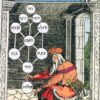
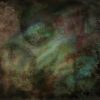

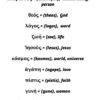
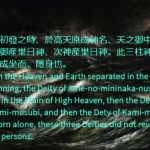


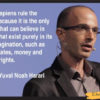
ディスカッション
コメント一覧
まだ、コメントがありません